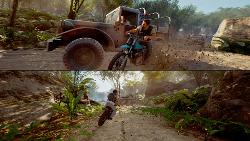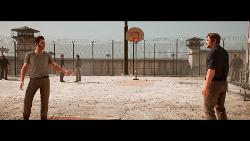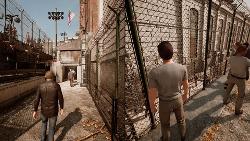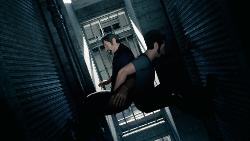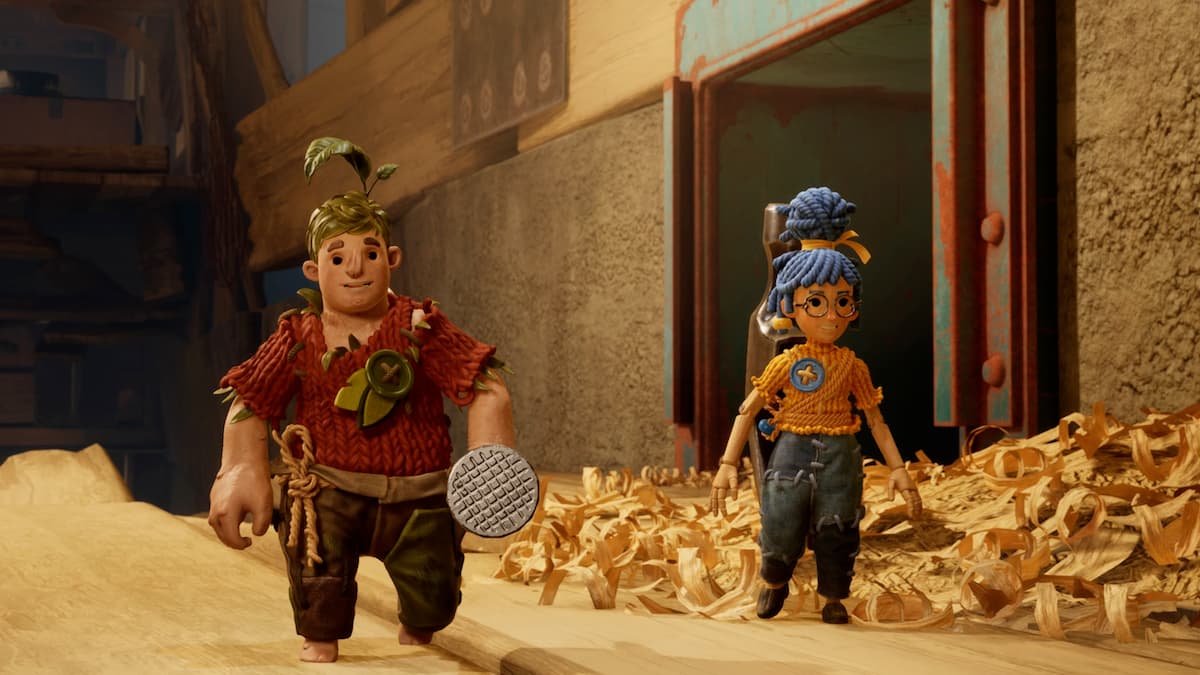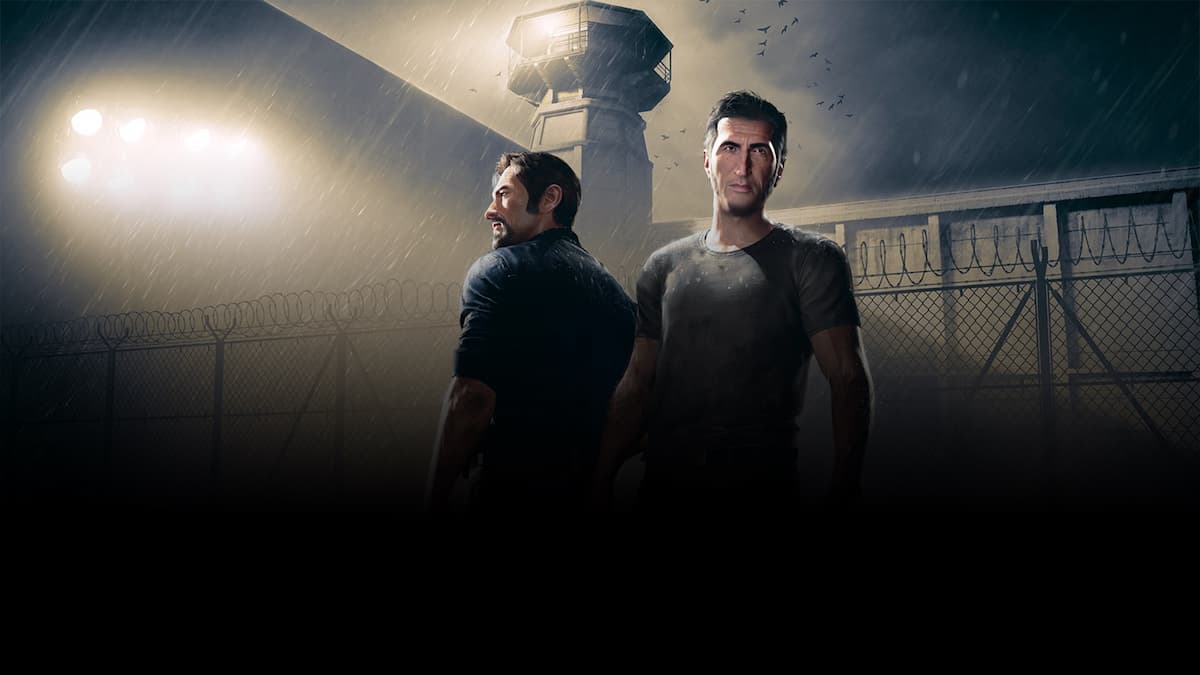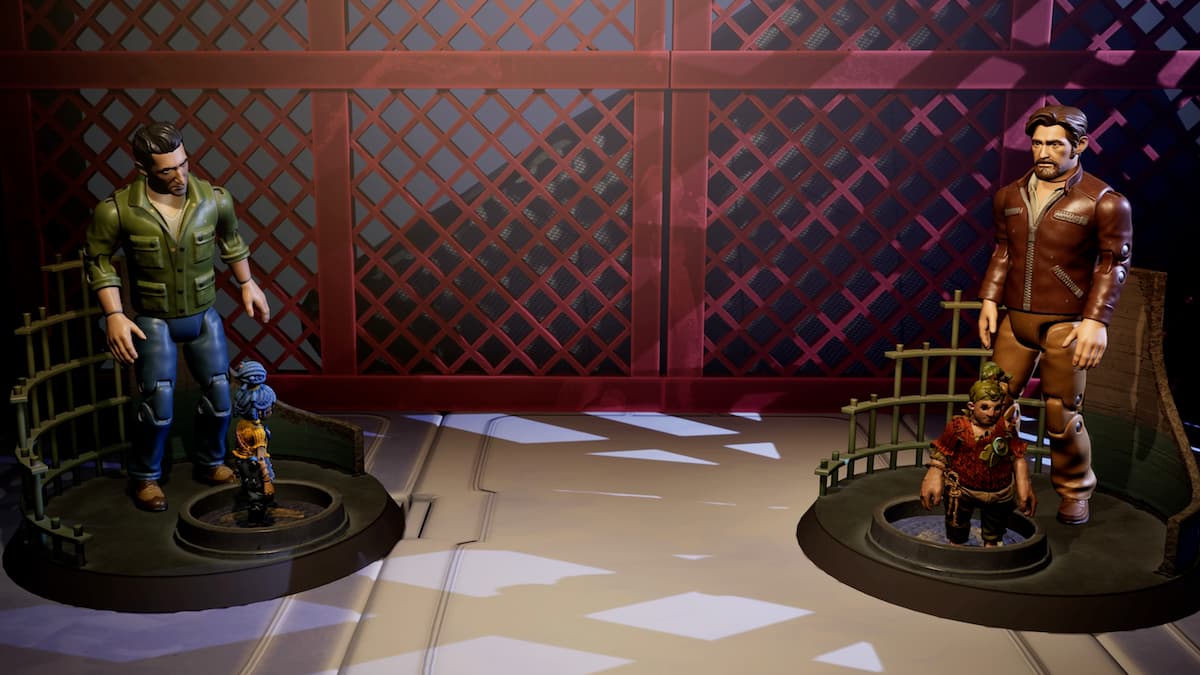Our A Way Out Review – I feel A Way Out is a great and unique game that could’ve pushed things a bit further when it came to story and to the endings. I loved every second of it, and I love the way it is completely different from the stuff we play every day.
When introducing A Way Out, game director Josef Fares always took some time to express how different he feels his title is. Quite honestly, I think he never managed to do that, but fortunately the amount of different the game carries with it is instantly clear as soon as you start playing it with a friend of yours.
The game begins with a few scenes from a prison life which has been very rarely depicted in video games, and that’s just the first point in favor of the uniqueness of A Way Out. It’s basically something you’ve most probably never experienced in a video game, and the fact that this happens in 2018 – where fundamentally all the narrative twists and turns have been exploited somehow – is something that always amazes me.
That portion of the game is just that – a portion, which doesn’t extends for all the game -, but probably the most inspired and ambitious in terms of direction. It looks obvious, when you play it, that the core concept behind the game revolves around the prison and the prison life, at the point that the quite big segment in jail almost feels like a demo of what you’re going to witness once you’re out.
Once you’re out, it’s then that you understand why that apparently stupid requirement of playing the game with another person is so important. As I said, A Way Out is quite different, but it’s also different from what you’d expect it to be when reading of that difference. Looking at it you might anticipate something heavily focused on story, but in my opinion it’s not about that.
In this EA Originals title, I see a lot of Quantic Dream’s productions: it’s a game that strives to build a connection between you and the other characters, with the only, huge difference that this time around “other characters” are played by a human being, possibly a friend of yours.
That’s why QTEs are in place and are so many, because the developers want you to feel the fatigue and the intensity of your relationship, but also need you to touch with your own hands the process of building a proper connection with the other person. For example, you play arcades and darts throughout the game, and that’s something unique to do in a video game which is supposed to be co-op: in those moments, it’s competitive, instead.
At the end of the game you feel a stronger relation with the person you went through A Way Out with, not because of the time you spent together but because of the quality of the time you spent together, and what you did with him – that’s different. In that time, you did stuff you usually do with a real friend using the “personas”, the avatars of Leo and Vincent.
Indeed, the story is quite simple and often filled with clichés from movies about prisons, and even the ending, while it tries and comes as a surprise, is never that shocking mainly because you probably had it in a list of three-four possible options. I liked the evolution à la Walter White in Breaking Bad of the character of Vincent, and I liked the fact that the multiple endings carry multiple nuances of meaning, completely changing your interpretation of “compassion” in this game.
But, with that said, all the scenes and the location serve as playgrounds where you can play against and together with your friend. In that perspective, and a bit visually speaking too, a couple of them feel like they’re under the high average quality level, but easily you won’t forget the things you’ll do in many of them with another person, at the times even unlocking special cut-scenes celebrating the friendship between the two protagonists. It’s definitely worth noting how the different levels in the stage intertwine thanks to movie-like shots and vibe.
And this is why you need to play it with someone else. It wouldn’t have been the same to play it with an AI or by yourself. It’s the amount of memories built along the way that makes A Way Out what it is, more than the brilliant direction, which is often inspired (with 2D sections and other stuff I won’t spoil), the visuals and the gameplay.
Admittedly, it’s linear and it’s very easy to complete, as it takes only six hours taking all the freedom to explore and play around with the things you find in the environment. Also, when it tries something different (like phishing) it gets a bit tricky to understand what to do and how to do it, and in the ending portion kind of loses what made it different in a much weaponized wrap up of the story.
But you simply can’t forget the laughs and the discussions with your friend at the end of the day, when you are at an in-game arcade to play some sort of Pong or when you’re playing darts and understand that you can walk in front of your friend to disturb him and so have an advantage. Or when you are in a stealth portion and it’ll take the both of you to be smart and quick in order to get out of it alive.
I played A Way Out with a friend of mine on PC, and it felt very good to see how amazing the game was to look at from time to time. Protagonists’ models are amazing, and the majority of the locations were places where we felt the need to take dozens of pictures, amazed by how beautiful their depictions were.
Interestingly, I played it with Ultra settings, 1080p resolution and 60 frames per second on a 4-5 years ago configurations, and it was great. I see EA Originals games, like Fe, come along with a high level of care for the platform and it’s very nice to see the level of polish the developers pour into the PC Origin titles.
So, wrapping things up, I feel A Way Out is a great and unique game that could’ve pushed things a bit further when it came to story and to the endings. I loved every second of it, and I love the way it is completely different from the stuff we play every day. I also loved the fact it is presented as a co-op title but never fears to transform into something which is totally different, and that plays as a competitive game between two friends in local or online.
It’s a nice experiment and I enjoyed a lot the Friend Pass, which secures you the opportunity to invite any friend, any time, without any need to own a second copy of the game. That’s the first time a video game has been this inclusive, and if that comes at an apparently overpriced $29,99 I’ll be fine with it. With some refinements here and there, the formula overall set to allow Josef Fares to establish as one of the top members in the game direction community and one who could stand as a genre-defining voice of his own.



